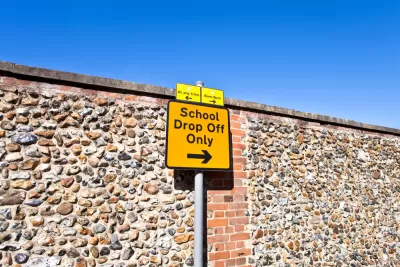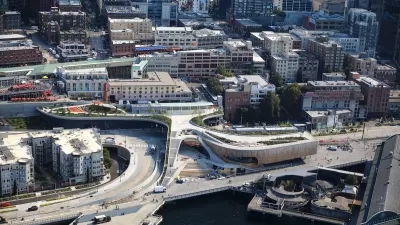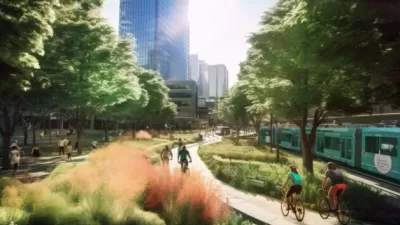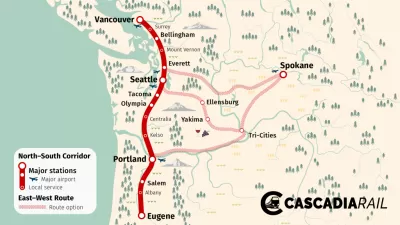Seattle schools are often forced to reduce their playground space in favor of parking and circulation for private cars, but altering the city code could change that.

An analysis of recent retrofits at two Seattle schools shows that "if the Seattle School District had complied with the City requirement for private car storage in the recent retrofits at Magnolia and Queen Anne Elementaries it would have obliterated all outdoor play space and a significant amount of indoor education space." Margaret McCauley argues that city code requiring Seattle schools to replace playground and activity space with surface parking and car traffic doesn't address the needs of bike riders and pedestrians and takes away valuable outdoor space.
With low-income families less likely to own cars, devoting "scarce land resources to circulation for privately owned cars is inequitable." McCauley writes that "encouraging a dispersed traffic pattern, where families (excluding the medically fragile of course) park remotely in the neighborhood and walk the final block with their kids, produces a safer setting" and encourages friendlier interactions than expecting families to "be able to easily drive to and from the school at arrival and departure times."
According to McCauley, a city code change that prioritizes "safe routes to school instead of a requirement for on-site parking and drop-off zones" would "allow Seattle’s School Traffic Safety Committee to focus efforts on safe routes to school rather than parking plans that are counterproductive to safety."
FULL STORY: Seattle City Code Requires We Pave Over Playgrounds, But We Could Change That

Planetizen Federal Action Tracker
A weekly monitor of how Trump’s orders and actions are impacting planners and planning in America.

Maui's Vacation Rental Debate Turns Ugly
Verbal attacks, misinformation campaigns and fistfights plague a high-stakes debate to convert thousands of vacation rentals into long-term housing.

San Francisco Suspends Traffic Calming Amidst Record Deaths
Citing “a challenging fiscal landscape,” the city will cease the program on the heels of 42 traffic deaths, including 24 pedestrians.

Amtrak Rolls Out New Orleans to Alabama “Mardi Gras” Train
The new service will operate morning and evening departures between Mobile and New Orleans.

The Subversive Car-Free Guide to Trump's Great American Road Trip
Car-free ways to access Chicagoland’s best tourist attractions.

San Antonio and Austin are Fusing Into one Massive Megaregion
The region spanning the two central Texas cities is growing fast, posing challenges for local infrastructure and water supplies.
Urban Design for Planners 1: Software Tools
This six-course series explores essential urban design concepts using open source software and equips planners with the tools they need to participate fully in the urban design process.
Planning for Universal Design
Learn the tools for implementing Universal Design in planning regulations.
Heyer Gruel & Associates PA
JM Goldson LLC
Custer County Colorado
City of Camden Redevelopment Agency
City of Astoria
Transportation Research & Education Center (TREC) at Portland State University
Jefferson Parish Government
Camden Redevelopment Agency
City of Claremont





























